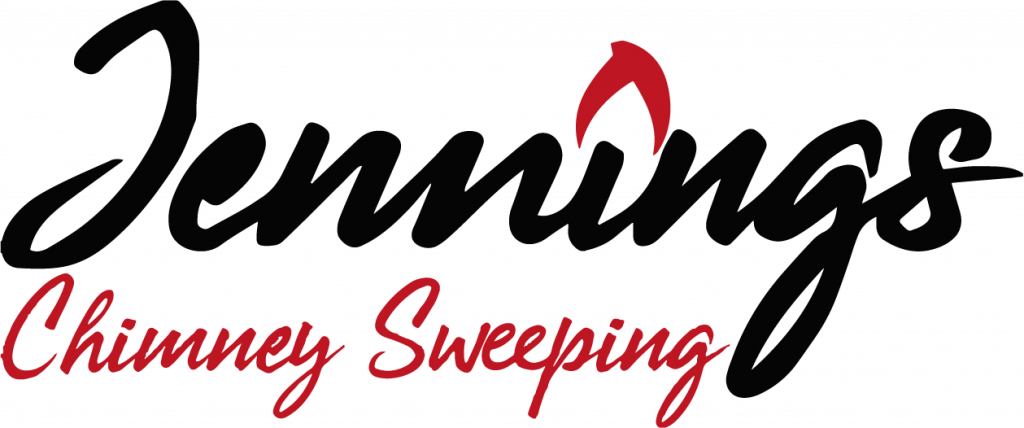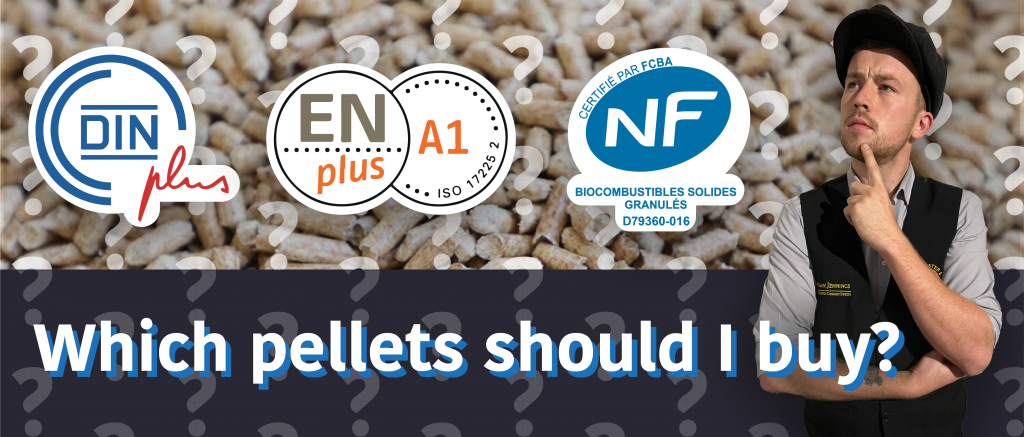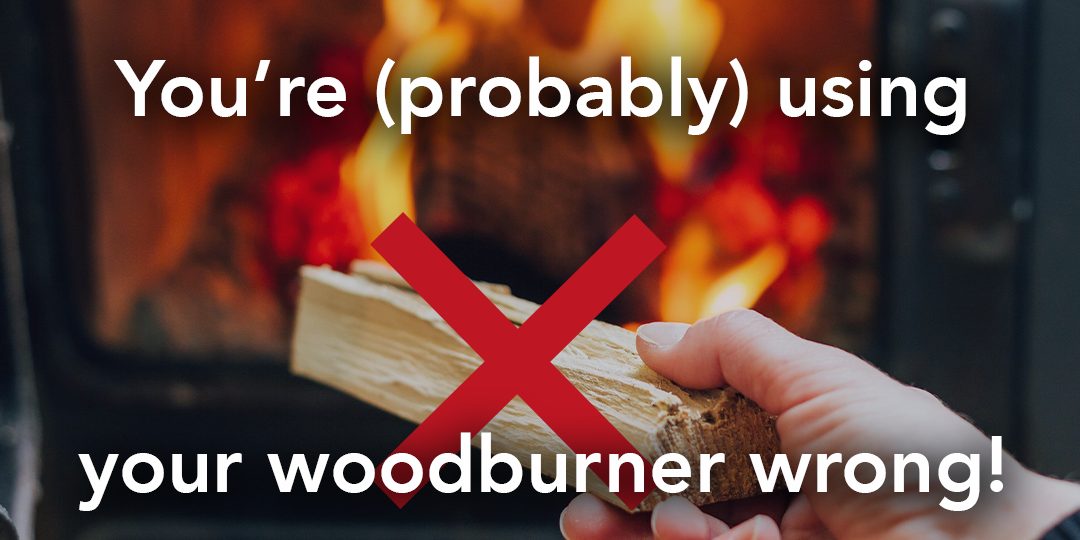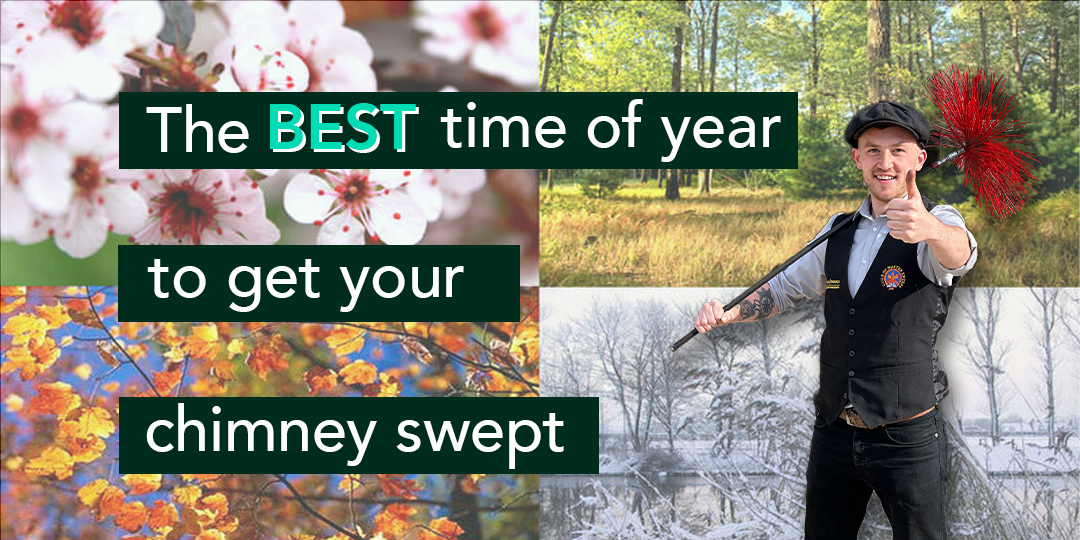In our most recent blog, we spoke about how wood pellets are made but we are yet to talk about the different grading and certifications the pellets receive. Understanding the different credentials and what they mean on each bag can be invaluable in making sure you’re buying the correct fuel for your appliance.
So why does pellet quality matter? Well, the quality of the pellets you buy directly impacts the energy efficiency, the maintenance costs and the life expectancy of your appliance.
The energy efficiency of your appliance is dependent on the fuel it is fed. Low quality pellets often have irregular shapes and densities. As these pellets are fed automatically into the combustion chambre, the irregularities result in varied amounts of fuel being added at any one time which in turn affects the smooth operation and cleanliness of the burn. Low quality pellets also produce more ‘fowling’, a deposit which settles inside your appliance and can drastically reduce energy efficiency over time. On top of this, the pellets themselves are easier to break, releasing fine dusts alongside their increased ash production. This in turn can clog up the feeding mechanism in the appliance or can even melt into a ‘slag’ which requires more effort to clean and can lead to higher maintenance costs during annual servicing.
There are a series of specific standards pellet producers must abide by in order to receive certifications for their product. Originally, they had to conform to ‘EN 14961-2 Standard’ however in 2014, the European standard was superseded by ISO 17225-2. Ultimately and thankfully for us, there are a handful of certifications on the market today that apply these standards, meaning we do not need to look for anything more than a recognisable logo of our pellet bags.
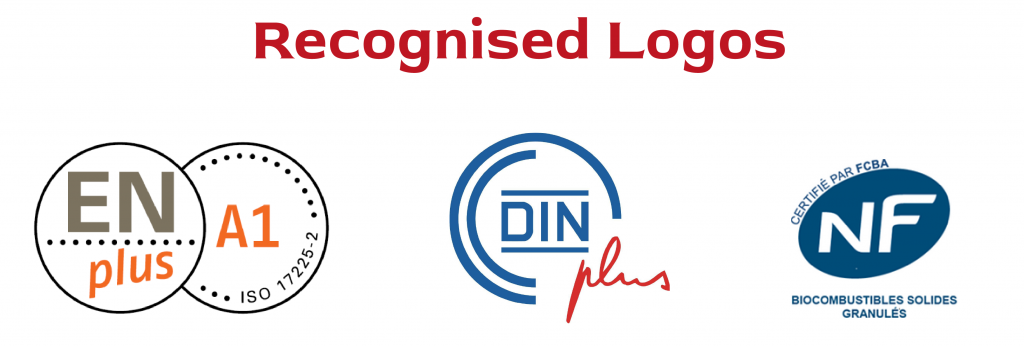
You may have seen the ‘ENplus’ logo produced on the bags of pellets you see in the shops and bring into your home. ENplus are the world’s most recognised pellet certification brand who in their 10 years of existence have certified and currently recognise over 1200 Pellet producers in 45 countries, on every continent on earth. Other certifications exist such as the ‘DINplus’ and ‘NF (Biocombustibles haute qualité)’ but apart from a handful of minor differences, all certifications offer the same trusted quality as they conform to the same standards. It is important to note however that ENplus offer a range of certifications depending on the quality of the pellets. Din+ and NF are equivalent with ENplus A1, the highest level of certification ENplus offer.
There are 3 categories of pellet certifications offered A1 (premium quality), A2 (Standard quality) and B (Industrial quality). A1 and A2 grade pellets are certified as ‘ENplus’ whereas B grade pellets are simply certified ‘EN B’. There are differences in the accepted wood stock, the Nitrogen and Sulphur contents of the pellets and the mechanical durability between A1 and A2 grade pellets but ultimately, the main difference comes down to the Ash content and its deformation temperature. As mentioned above, the quality of pellets impacts the efficiency, maintenance and life expectancy of your appliance. With this in mind, purchasing pellets of an A1 quality is recommended except for those who are happy to provide a higher level and more frequent maintenance of their appliance.
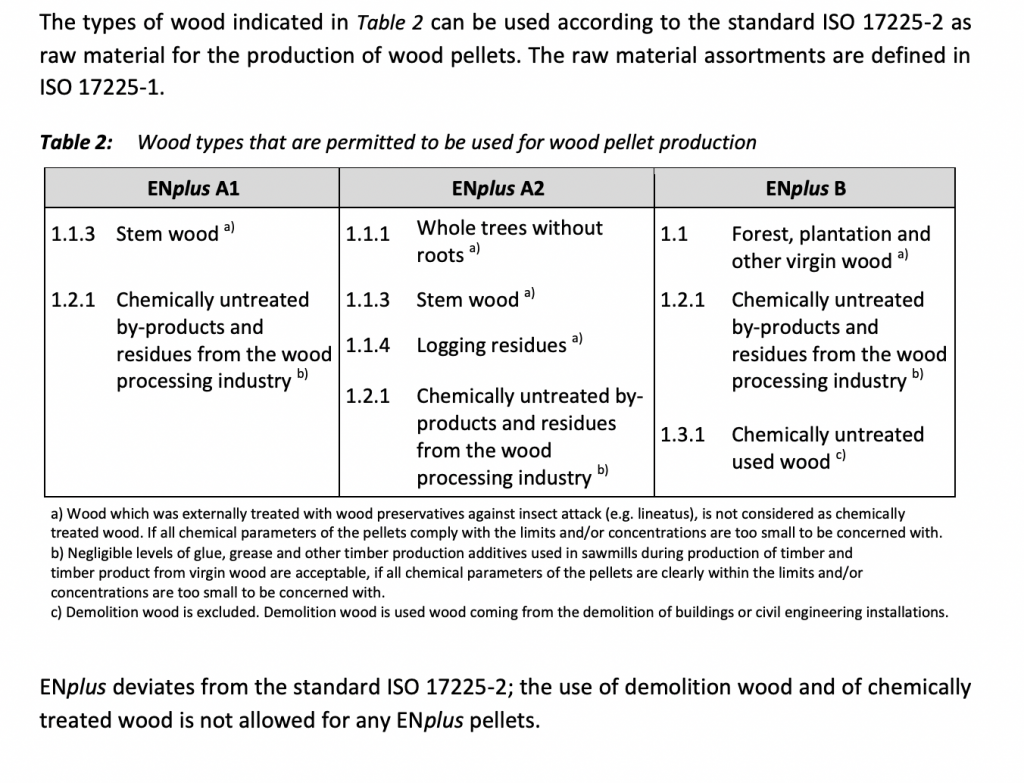
For industrial pellet burners and boilers, those that are subject to more frequent maintenance anyway, you may which to opt for pellets of ‘EN B’ quality. These pellets will be considerably cheaper than the ENplus range but produce up to almost 3 times as much ash.
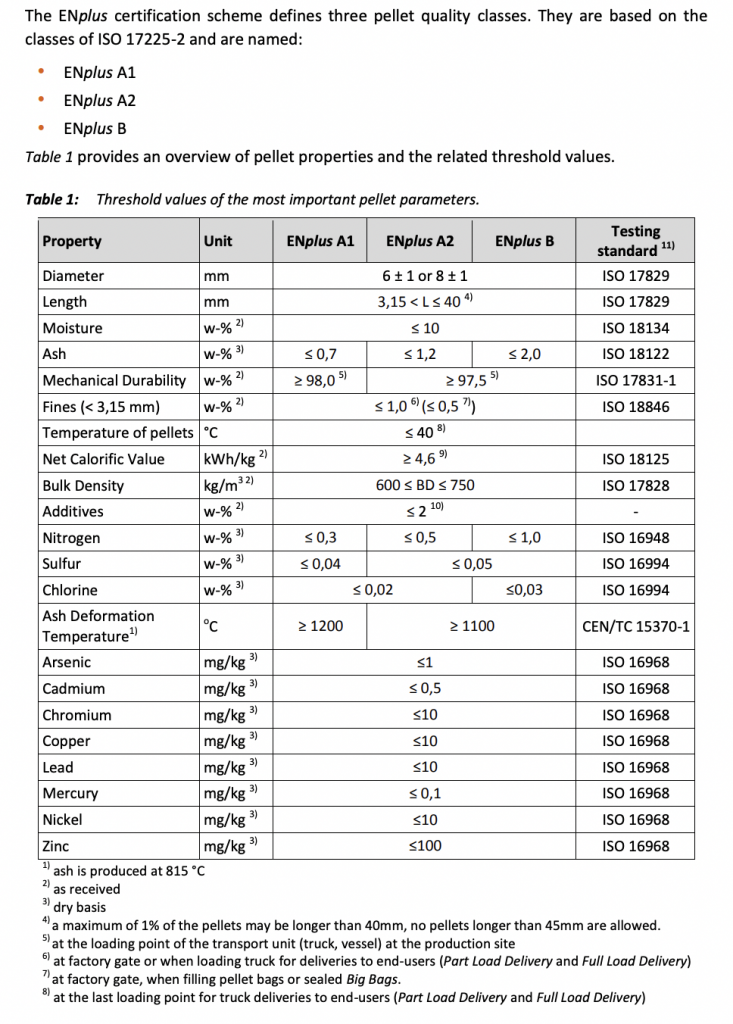
To see the full breakdown of the characteristics of the ENplus range, you can view the ENplus Handbook here: https://enplus-pellets.eu/images/Handbooks/UK/ENplusHandbook_part3_V3.0_PelletQuality_UK.pdf
Knowing what you are putting into your pellet burner is vital for it’s health and efficiency. Purchasing pellets with recognised awarded certifications is a sensible way of guaranteeing you are giving your pellet burner what it needs. We recommend making sure the producer is listed on the certification’s directory and has retains the rights to produce pellets with the certification’s logo. Below you can find the ENplus directory and Blacklist for those who hold current certifications.
ENplus: https://enplus-pellets.eu/en-in/certifications-en-in/trader-en-in.html#sublicensing
